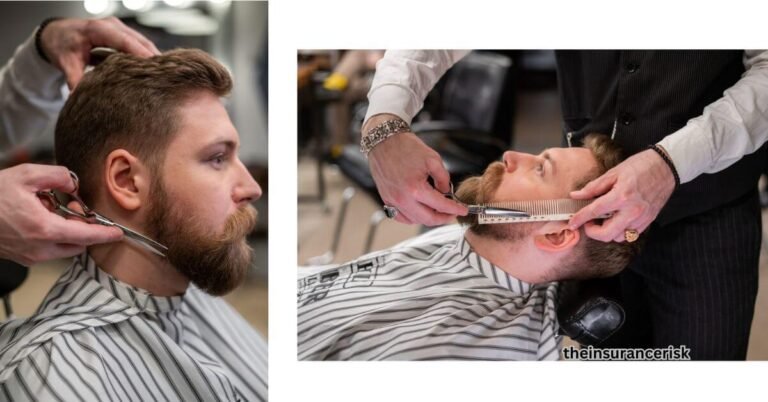Protect Your Business with Non-Trucking Liability Insurance: Comprehensive Coverage for Your Peace of Mind
Federal law mandates trucking companies to provide a minimum insurance coverage of $750,000 per accident to safeguard their drivers. While smaller carriers with five or fewer trucks may opt for basic trucking insurance, larger operators often seek additional protection against various forms of trucking liability, such as non-trucking liability insurance.
Non-Trucking Liability
Non-trucking liability insurance is like a safety net for owner-operators who are not working, like on days off. Usually,
the trucking company’s insurance only kicks in when the truck is used for work. You will likely need extra insurance if you want coverage for personal use, like running errands or road trips. That’s because regular insurance policies, built for business, usually only cover personal stuff without getting additional coverage.
Non-Trucking Liability Cover
Non-trucking liability insurance has lots of perks. It covers injuries and damage when using your truck for personal reasons, not work. This insurance is like a shield, guarding truckers from lawsuits after an accident and helping with medical bills if someone gets hurt. So, it’s like a safety buddy for truckers during their off-duty moments.
Even if the law doesn’t make it mandatory, an owner-operator might still want non-trucking liability insurance if the motor carrier insists. This kind of insurance is often part of a deal (like a lease agreement) between the operator and the motor carrier. It’s there if the trucker accidentally causes an accident while using one of the carrier’s vehicles.
Difference Between Owner-Operated And For-Hire Coverage
Companies can choose from various auto liability policies for owner-operators and for-hire insurance, depending on what they need. But here’s the thing: having both types of coverage, non-trucking liability insurance and physical damage coverage, is like building a strong fortress for their business. It adds an extra layer of protection, covering all bases.
Owner-Operated Coverage
When an owner-operator works with a motor carrier, they usually get covered by the company’s auto liability insurance. But here’s the catch: it only kicks in when they are carrying a load or on an official dispatch. This coverage covers injuries or property damage if the motor carrier is at fault.
Now, for the owner-operator’s truck (the tractor), they should also grab physical damage insurance. That way, they are protected if their car gets damaged or lost. It’s like having a safety net for their wheels.
For-Hire Coverage
So, for-hire coverage is usually for companies with independent contractors on a long-term lease. It’s like the central shield, called primary liability insurance coverage. But here’s the thing: they might have to add more protection on top of that.
Before hitting the road, checking with the motor carrier is essential. They will let you know if you need extra coverage, like bobtail and physical truck insurance, on top of the primary insurance. And here’s an intelligent move think about getting non-trucking liability, too. It’s like ensuring all your bases are covered for a worry-free journey.
Bobtail Insurance
Bobtail insurance steps up when your truck is rolling without a trailer. Some folks mix it with non-trucking liability insurance, which is only for personal use. Here’s the deal: bobtail coverage works whether you are on duty.
If your primary insurance doesn’t cover the trailer, bobtail insurance has your back. But remember, it won’t handle physical damage when you are hauling a trailer, working for a carrier, or using the truck to earn money. It’s like a specific kind of protection for particular situations.
Physical Damage Coverage
When your truck gets into a collision and needs fixing, physical damage coverage is the friend you want. There are two main types of trucking insurance for this: collision and comprehensive. Comprehensive truck insurance is like the superhero because it covers a broader range of damages. It’s your go-to when you want that extra layer of protection for your wheels.
Cost Of Non-Trucking Liability Insurance
Since non-trucking liability insurance is less wide-ranging than other policies, it might set you back around $29 to $50 monthly. Here’s the trick: insurance companies determine this amount by looking at how often you use your truck for personal trips. They crunch these details to determine the cost of your non-trucking liability insurance premium.
Misunderstanding About Non-Trucking Liability
People often mix up NTL, thinking it’s just the coverage when you are not on an official job. But this is where it can get a little tricky.
Motor Carrier’s PRIMARY Commercial Auto Policy:
- Driving to and from the terminal or parking spot.
- Fueling up or giving your truck a good wash.
- Traveling to maintenance spots.
- You went during breaks or when your vehicle was empty (deadheading).
Because they’re considered essential parts of the Motor Carrier’s operations. So, the Motor Carrier’s policy has your back in these situations.
How can I buy Non Trucking Liability Insurance?
When you get insurance, the company will want a copy of your lease agreement with the Motor Carrier. Here’s what they are looking for in that paper:
- First off, your name on the lease should match what’s on your insurance policy.
- Then, they want to see the Motor Carrier’s name and their DOT number. It’s like the insurance company’s way of double-checking who you’re working with.
- Make sure it clearly says “Non-Trucking Liability” in your lease. It’s not Bobtail or Unladen. They are different things. Just keep it spelled out.
- Lastly, look for signatures from both you and your Motor Carrier. It’s like a thumbs-up from both sides, making everything official. So, those are the key things the insurance folks want to see in that lease agreement.
Some More Misunderstood About Non-Trucking Liability
When you get your new truck, having insurance immediately is like a rule. Your state says you need Primary Commercial Auto Liability, but you are considering leasing to a Motor Carrier soon.
Here’s where a Truck Insurance Broker comes in handy. They can provide the proper coverage to drive off the lot’s Primary Liability. Once you sign that lease, they can switch it to Non-Trucking Liability. It’s like a tailored suit for your truck insurance.
If you find out you teamed up with the wrong Motor Carrier later on, just ring up your Truck Insurance Broker. They can switch it back to Primary Liability while you figure things out. This is a big plus when you have your truck insurance instead of going with the company plan. It gives you the flexibility to adjust things as you need.









